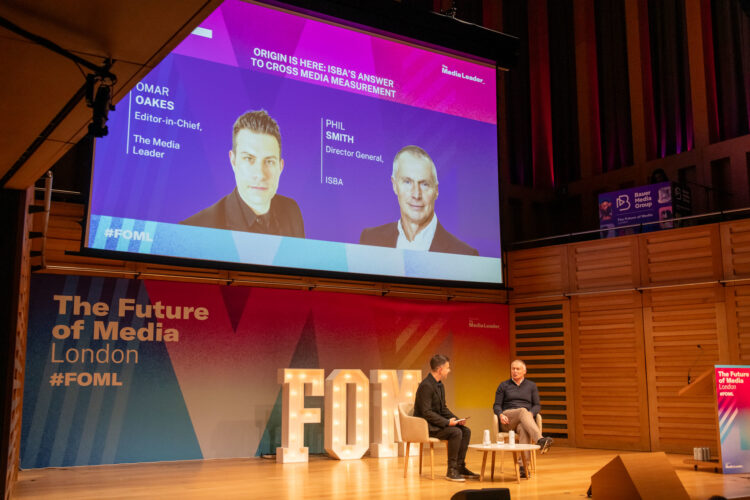Opinion
The amount of activity in the measurement space confirms that this is what advertisers are most interested in.
A year ago, I dared to ask whether Origin was our industry’s equivalent of the ill-fated HS2 rail infrastructure project. This resonated with many and drew ire from some.
A lot of water has passed under the bridge since, but to stretch the metaphor, it remains choppy.
The issue at the centre of why broadcasters and Origin are not aligned remains: what constitutes a view?
Unless one can agree on that, one can’t mash things together, deduplicate and get the outputs sought.
Advertisers risk taking effectiveness for granted
Origin is supported by a number of leading advertisers with many more pledged to join once tested and proved.
Like the broadcaster initiative C-Flight, it focusses on de-duplicated reach of campaigns across platforms, specifically broadcast and online.
The amount of activity in the space confirms that this nexus is what most of the money is most interested in.
Take Lantern, a significant initiative announced recently by Sky, ITV and Channel 4. It offers a way to measure the impact of TV advertising on a host of online outcomes, such as web and search behaviours.
Despite the continuing narrative about loss of audiences, particularly younger ones, TV is putting up one hell of a fight.
It seems that most everybody who retains a shred of independence has reached the conclusion that telly does indeed kick ass. For sales, but more crucially and uniquely, for branding. This is demonstrably profitable, especially in the longer term.
The body of evidence is ever more substantial but as always, the multimillion-dollar question is whether advertisers heed something they used to take for granted.
Barb continues to expand its canvass across streaming channels and add further welcome granularity from its recently expanded viewer panel.
In partnership with C-Flight, it captures live, time-shifted and on-demand commercial impacts and impressions across all viewing platforms and reports de-duplicated total reach and frequency across linear TV and broadcaster VOD.
A tale of two panels
It’s a benign historical legacy that UK TV advertising has long operated to one of the most stringent definitions of viewing anywhere.
Definitions of online views, led by the platforms and vendors are (how to put it politely?) extremely porous. Almost meaningless.
The broadcasters continue to resist anything that further legitimises such thin gruel, even as advertisers continue mystifyingly to dump yet more money that way.
Nor, equally understandably, are they keen to cosy up to those who have been eating their lunch and who seem to be providing the dominant proportion of funding.
Barb’s broadcaster members know that their standard terms of business offer a powerful lever when it comes to providing information to Origin.
So Origin is proceeding with its own audience panel. Panels are relentlessly expensive. Their size has a direct statistical impact on the accuracy and granularity of their outputs.
Origin’s is about a third of the size of Barb’s and a minnow compared to the goldmine that the redoubtable Matt Hill is about to get to play with at Sky.
Money talks
There are bound to be some similar but also many contrasting outputs from Origin.
Direct Line’s evergreen Sam Taylor, a leading light at ISBA, recently sought here to reassure that Origin is not a currency.
But my eye sees multiple, coexistent, competing currencies influenced by stakeholder interests. Never a good look.
Questions like “Can broadcasters and ISBA’s Origin live happily ever after?” are now being asked. Other commentators might agree that it’s been quite difficult to get inside what the advertisers have already been coughing up large sums on; Origin has recently launched in beta with a dozen of the largest.
It is after all, at least in spirit, a joint industry initiative. Isn’t it?
 Bob Wootton spent 40 years working in advertising, first as a media buyer at some of the UK’s leading agencies before joining the trade body Isba in 1996, where he was advertising and media director for 20 years. He is also the founder of Deconstruction, a media and tech consulting business, and presents The Guitar Show on YouTube.
Bob Wootton spent 40 years working in advertising, first as a media buyer at some of the UK’s leading agencies before joining the trade body Isba in 1996, where he was advertising and media director for 20 years. He is also the founder of Deconstruction, a media and tech consulting business, and presents The Guitar Show on YouTube.






 Bob Wootton spent 40 years working in advertising, first as a media buyer at some of the UK’s leading agencies before joining the trade body Isba in 1996, where he was advertising and media director for 20 years. He is also the founder of Deconstruction, a media and tech consulting business, and presents The Guitar Show on YouTube.
Bob Wootton spent 40 years working in advertising, first as a media buyer at some of the UK’s leading agencies before joining the trade body Isba in 1996, where he was advertising and media director for 20 years. He is also the founder of Deconstruction, a media and tech consulting business, and presents The Guitar Show on YouTube.